Tobias Tempel
Temporarily Unavailable: Memory Inhibition in Cognitive and Computer Science
Nov 15, 2019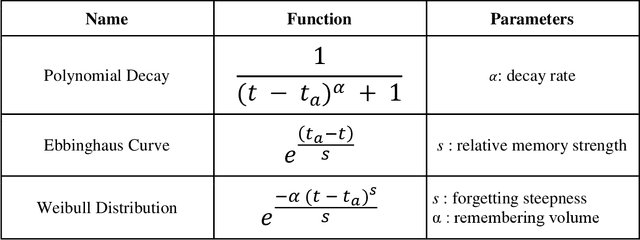

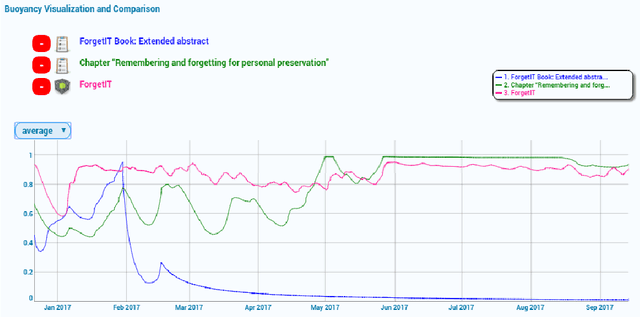
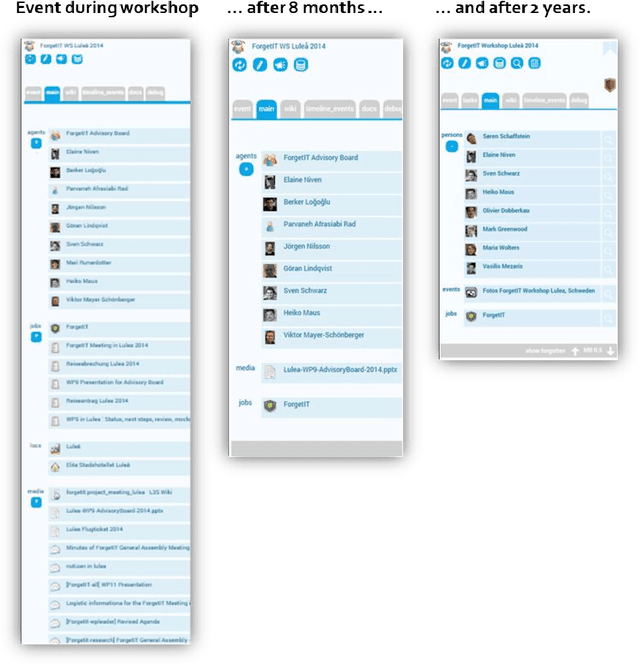
Abstract:Inhibition is one of the core concepts in Cognitive Psychology. The idea of inhibitory mechanisms actively weakening representations in the human mind has inspired a great number of studies in various research domains. In contrast, Computer Science only recently has begun to consider inhibition as a second basic processing quality beside activation. Here, we review psychological research on inhibition in memory and link the gained insights with the current efforts in Computer Science of incorporating inhibitory principles for optimizing information retrieval in Personal Information Management. Four common aspects guide this review in both domains: 1. The purpose of inhibition to increase processing efficiency. 2. Its relation to activation. 3. Its links to contexts. 4. Its temporariness. In summary, the concept of inhibition has been used by Computer Science for enhancing software in various ways already. Yet, we also identify areas for promising future developments of inhibitory mechanisms, particularly context inhibition.
* 46 pages, 5 figures, preprint, final version published in IWC
Managed Forgetting to Support Information Management and Knowledge Work
Nov 17, 2018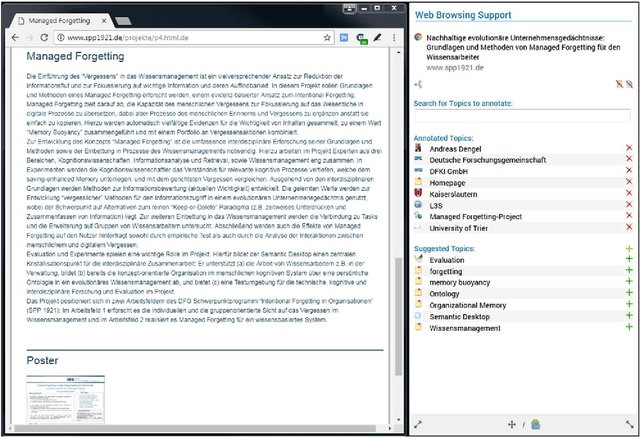
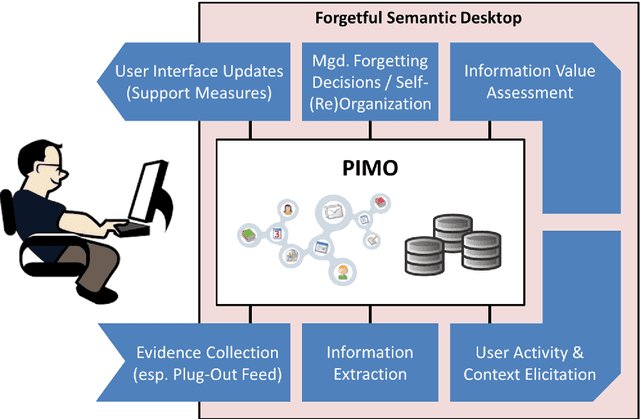
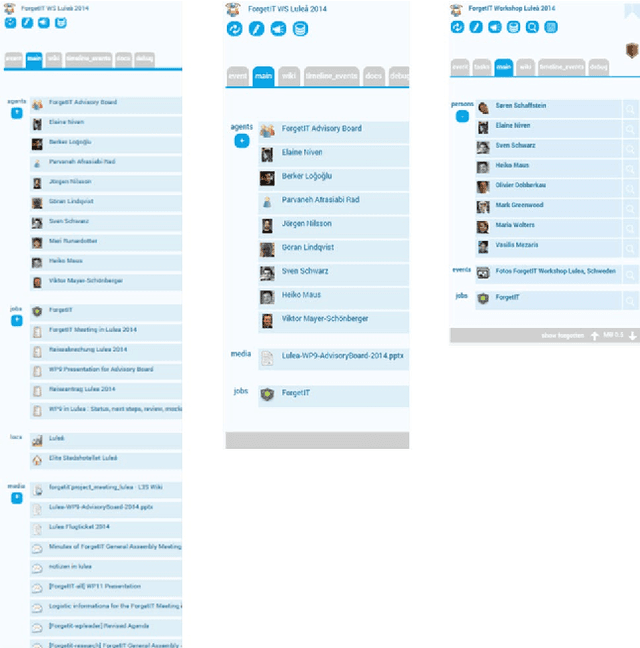
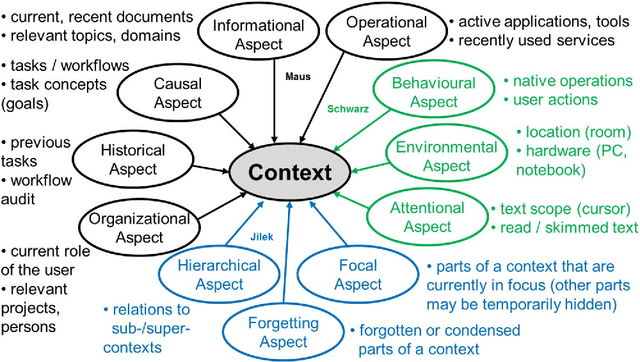
Abstract:Trends like digital transformation even intensify the already overwhelming mass of information knowledge workers face in their daily life. To counter this, we have been investigating knowledge work and information management support measures inspired by human forgetting. In this paper, we give an overview of solutions we have found during the last five years as well as challenges that still need to be tackled. Additionally, we share experiences gained with the prototype of a first forgetful information system used 24/7 in our daily work for the last three years. We also address the untapped potential of more explicated user context as well as features inspired by Memory Inhibition, which is our current focus of research.
 Add to Chrome
Add to Chrome Add to Firefox
Add to Firefox Add to Edge
Add to Edge